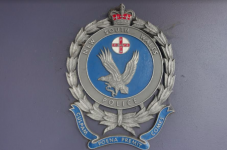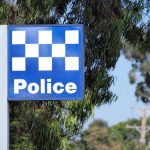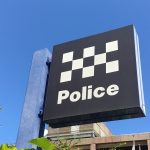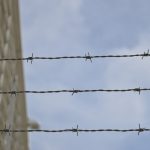NSW Police Strip-Search Female Protesters

Two women protesting the treatment of asylum seekers on Manus Island have reported being arrested, conveyed to the police station and strip-searched before being released without charge.
Susan Price and Rachel Evans were amongst around 200 people protesting Australia’s offshore detention regime at a Liberal Party fundraiser in Sydney last week.
51-year old Ms Price says she and 43-year old Ms Evans were “picked up at a rally completely sober”, “thrown into the back of a police paddy wagon” and driven to Newtown police station.
“I was informed that they would need to conduct a strip-search and this was for my protection because I was in their care and custody and there might be something on my person I could hurt myself with,” she told a media source.
“I was asked to turn around and squat and asked if I had any contraband.”
Ms Price reported being advised she was under arrest due to her “failure to move on.” After being released without charge, the protester was “… was left feeling like it was a way of intimidating us or to give us a scare or whatever.”
The strip-search
Ms Evans reported being disturbed by the invasiveness of the search, saying she only expected to take her t-shirt off.
“Then they said ‘take off the bra’ at which I was incredulous and then they said ‘jewellery and shoes’ and asked me to take off my underwear,” Evans reported.
“I said ‘this is ridiculous, I have my period’ and so they did a pat down.”
Ms Price said she was not advised of the reason for her arrest.
Police response
A NSW police spokesperson initially confirmed the women were arrested and released without charge in connection with the protests, but refused to respond to questions about the strip-searches.
Police later told the media that, “Police can confirm the allegations, and the complaints made, are now subject to an investigation.” They would not comment further on the matter.
Police power to search people without a warrant
Part 4 of the Law Enforcement (Powers and Responsibilities) Act 2002 outlines the power of NSW police to stop, search and detain people without a warrant.
Officers can do so when they reasonably suspect a person possesses stolen property, has anything used or intended to be used to commit an offence, is carrying a dangerous item or weapon, or is in possession of an illegal substance.
Police may seize and detain any of such items.
Police also have ancillary powers to order a person to open their mouth for the purpose of a search, and to shake their hair if they suspect something is being concealed within it. Failure to comply with this request can result in a maximum penalty of a $550 fine.
A person can also be searched in a public place or a school if officers have a reasonable suspicion that they’re carrying a knife or a laser pointer. An officer can confiscate such items, and failure to comply with the search can result in a fine of up to $5,500.
Strip-searches
Under section 31 of the LEPRA, police have the power to carry out strip-searches if this is necessary for the purposes of the search and the urgency of the circumstances require such a search to be undertaken.
A strip-search must be conducted in a private area by a member of the same sex. At no time should a person’s body cavities be searched, nor should a person be touched in any way.
No person should be present who is not needed for the purposes of the search, nor should any item of clothing be removed unnecessarily.
Strip searches must not be carried out on children under the age of 10.
Police are informed by their own guidelines that any search requiring the removal of more than an outer layer of clothing is a strip-search.
It is highly questionable whether the reported circumstances surrounding the arrests and alleged strip-searches of Ms Price and Ms Evans rendered these acts lawful.
In the event they were unlawful, the pair are at liberty to pursue civil claims against the NSW Police Force.
Strip-searches: A new and unwelcome police tactic
Will Tregoning, the director of harm reduction organisation, Unharm, believes that:
“The benefits of this program… [of strip-searching] are so small that they don’t justify that level of invasion of privacy”. He adds that, “Programs like this bring the police into disrepute.”
NSW Greens MP David Shoebridge has labelled strip-searches a “new and deeply unwelcome tactic” by the NSW Police Force, expressing concerns it will become a “new standard way of dealing with protesters”.
In NSW, the number strip-searches increased by almost a third between 2009 and 2014. Mr Shoebridge points out that many of these searches were undertaken after false positives by drug detection dogs; in other words, after a sniffer dog indicated the presence of drugs on a person by none were found.
In relation to the present case, Mr Shoebridge remarked, “These two women were arrested and detained, not for serious questioning, but only to be strip-searched and humiliated”.
“There was no rational reason to think either of these women was a danger to police or had sharp weapons hidden on them. Strip searching them was offensive, unreasonable and designed to intimidate.”
Mr Shoebridge said that up to 500 innocent people each year are being subjected to the “humiliating” personal searches.







